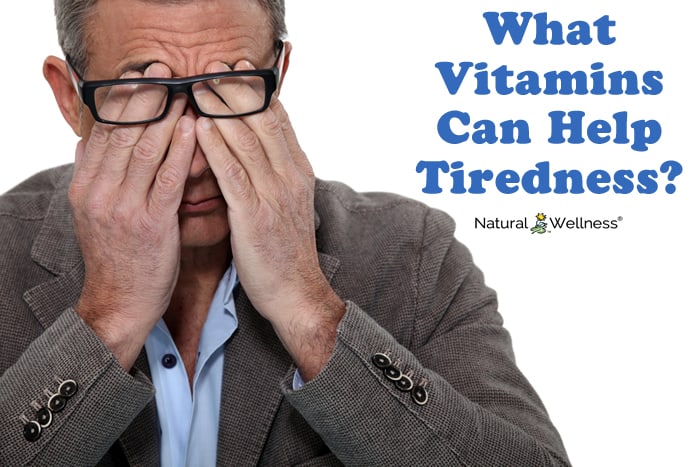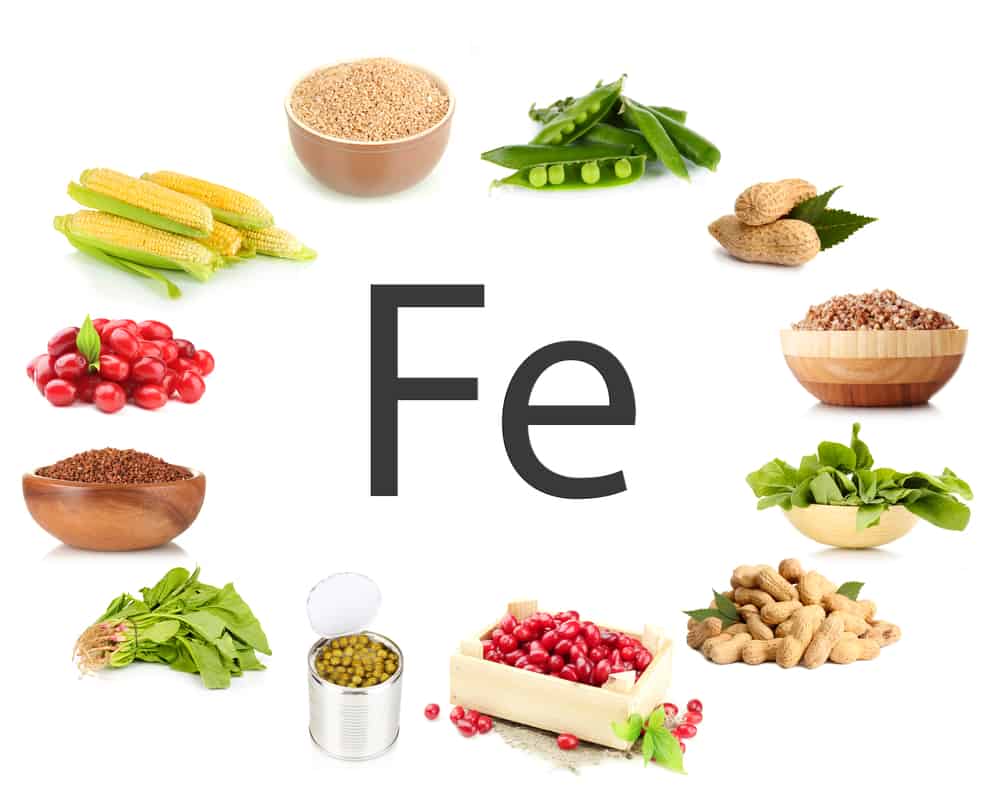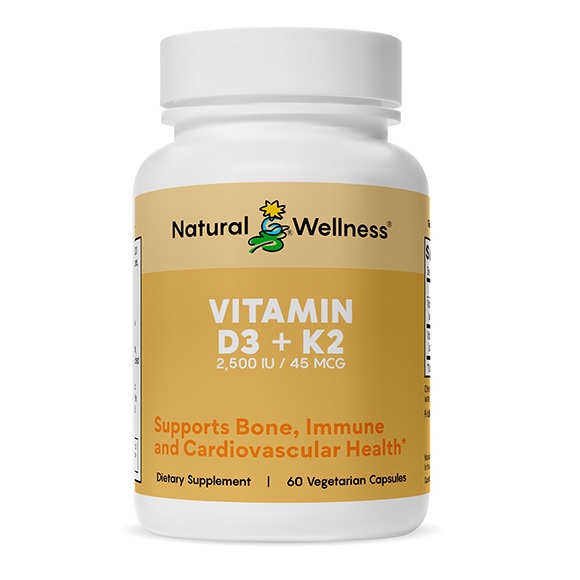

Have you ever nodded off at your desk? In a meeting? At a meal with family or loved ones?
Life is full of stressors and responsibilities that bog us down and tire us out.
If you’ve been suffering from fatigue or tiredness, the cause could likely be a vitamin or mineral deficiency. Maybe it’s time to incorporate some better foods or supplements into your diet. Doing so could energize you now, and help prevent a host of problems down the road.
The Most Common Vitamin and Mineral Deficiencies to Help Tiredness
The most common vitamin and mineral deficiencies that lead to fatigue, stress, weakness and inconsistent energy levels, include:
- Iron
- Magnesium
- Potassium
- Folic Acid
- B Vitamins
- Vitamin D
They’re also the simplest deficiencies to address, and are common in most supplements and multivitamin.
Solving the problem sooner rather than later could help prevent a variety of short and long-term health issues including:
- brittle bone syndrome
- anemia
- impaired brain function
Now, let’s dive into just how a lack of iron, magnesium, potassium, folic acid, B vitamins and vitamin D can make you tired.
Iron (Fe)

Your body needs iron to produce hemoglobin in red blood cells and myoglobin in muscle cells which are necessary to oxygenate your body. Very important stuff.
8 Signs of Iron Deficiency
- general fatigue
- pale skin
- weakness
- shortness of breath
- dizziness
- cold hands or extremities (poor blood circulation)
- irregular heartbeat
- headaches
Oh, and iron deficiency is also a stepping stone to anemia. Fortunately, there’s an abundance of iron-rich foods out there such as:
- meat (lamb, pork, chicken and beef)
- nuts
- beans
- leafy greens
- citrus fruits with vitamin C (vitamin C helps your body absorb iron)
But if your loved ones are stubborn or changing your diet isn’t realistic, perhaps taking iron supplements or a multivitamin that contains vitamin c and iron could be an easy way to ensure you’re absorbing enough.
Magnesium (Mg)
The U.S. Dept. of Health and Human Services recommends 310mg – 420mg for most adults between the ages of 19 and 50 years old. They also warn that chronic low intake of magnesium can increase the risk of illness over time.
In the short term, tremors, muscle spasms, loss of appetite and discoordination are all symptoms of being magnesium deficient. Magnesium also plays a key role in carbohydrate metabolism and a deficiency can directly cause insulin resistance which means fatigue, lethargy and brain fogginess.
Loss of appetite and consequently not eating can also trigger other vitamin deficiencies, so it’s easy to see how a seemingly inert situation could spiral out of control. Consult your doctor if you think you are suffering from any sort of deficiency.
Potassium (K)
Weakness, fatigue, muscle cramps, constipation, and heart palpitations (being the most concerning), are all symptoms of a potassium deficiency.
Causes can vary but be extra careful if you’re taking any diuretics, vomiting or drinking in excess. If you’re experiencing any of the symptoms, we suggest you eat a banana and see your doctor as soon as possible.
Folic Acid
According to the University of Michigan’s C.S. Motts Children’s Hospital “Folic acid is one of the B vitamins, and it helps your body make new cells, including new red blood cells.” And if a deficiency of it is appearing in this article we bet you can guess what the symptoms are.

That’s right:
- chronic fatigue
- feeling weak and tired
- trouble concentrating
- loss of appetite
- and more
Conditions prone to folic acid deficiency (and potentially anemia by extension) include eating overcooked foods, excessive drinking and being pregnant.
To make sure you’re getting enough folic acid simply take a supplement, or make sure you’re eating enough foods rich in folic acid like leafy greens, beans, citrus fruits, rice, and pasta.
B12
According to Harvard Medical School, weakness, fatigue and cognitive difficulties are all signs that you’re not getting enough B12.
In the elderly, a B12 deficiency can be life-threatening with symptoms like shortness of breath, trouble walking, and severe joint pain. If prolonged, it can lead to depression or memory loss.
Basically, B12 is one of eight B vitamins that help your body convert the food you eat into glucose, which gives you energy. Make sure you’re getting your B12 in the form of a supplement or a well-balanced diet.
Other high-risk groups are vegans. While plant-based diets supply most all other vitamins and minerals, B12 is most likely lacking. Going vegan may the right thing for you to do, but make sure you’re still getting the B12 you need.
B Vitamins Rock
Simply put, B vitamins are needed for converting food into energy. And as we’ve already touched upon, “Lack of even just one B vitamin can compromise an entire sequence of biochemical reactions necessary for transforming food into energy.”
The B vitamins are as follows:
- B1 (thiamine)
- B2 (riboflavin)
- B3 (niacin)
- B4 (adenine, folic acid, and pantothenic acid)
- B5 (pantothenic acid)
- B6 (pyridoxine)
- B12 (cyanocobalamin)
Think back to high school science. Remember the mitochondria, the energy powerhouses of our cells? Well, if you’re lacking any of the B vitamins, mitochondria have trouble producing energy.
B vitamins are found in so many foods, from rice, wheat, beans, legumes, eggs, animal proteins, citrus fruits, and leafy greens. Honestly, the list is extremely long.
If your diet is balanced, that’s great, but some people have trouble absorbing the right amount of B vitamins, can’t, or don’t eat the foods they need. In these cases, a supplement may be the only way to avoid a vitamin B deficiency. This fatigue relief supplement is an easy and natural way to get the B vitamins you need as well as a host of other energy enhancing ingredients like ginseng, milk thistle, and vitamin C.
Vitamin D
An interesting source of information on vitamin D is The Vitamin D. Council, founded by John Cannell M.D., a former anti-smoking activist turned vitamin D cheerleader. If you listen to him, 40% of the world is vitamin D deficient and the symptoms include fatigue or tiredness, frequently getting sick, bone and back pain, and depression.
The Vitamin Council advises asking your doctor for a test or ordering an in-home test if you suspect you may be deficient. Solving a deficiency may be as simple as getting more sunshine, but talk your doctor sooner rather than later because prolonged deficiencies can lead to serious issues like bone disorders.
Conclusion and General Tips
Diet plays such a huge role in preventing vitamin and mineral deficiencies, but often, we are our own worst enemies. Change can be hard and that’s why you may want to start small.
If grains are a large part of your diet try leaning towards whole grains as opposed to processed grains like white bread or white rice. Whole grains will help your body regulate its blood sugar levels and keep energy consistent throughout the day.
Do your best to incorporate nutrient-rich foods. If your diet is plant-based or excludes large food groups like meat or dairy, or perhaps your body isn’t absorbing the nutrients it needs from foods as well as it used to, a supplement or multivitamin could be the simplest way to ensure you get everything you need.
Don’t wait. Make sure you’re giving your body everything it needs to function properly, including iron, magnesium, potassium, folic acid, B vitamins and vitamin D. Waiting could make your problems way worse than trying not to fall asleep in the next staff meeting.





